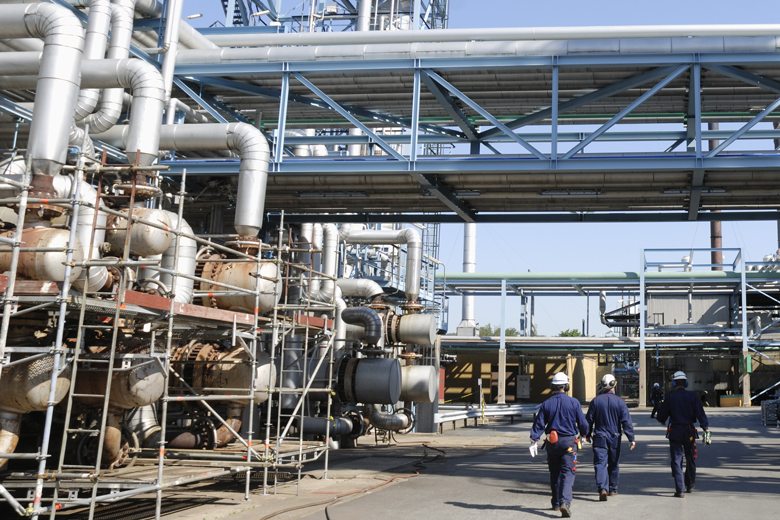

Post-sanctions Iran is seeking to export refined products that meet international requirements
Iran will conclude studies for upgrading four refinery projects with a collective capacity of more than 1 million barrels a day (b/d) by the end of 2017, according to a source close to the development programme.
Some of Irans oldest refineries at Abadan, Bandar Abbas, Tabriz and Tehran are in need of renovation in order to meet requirements set by the International Maritime Organisation (IMO) regarding sulphur content in refined fuel.
National Iranian Oil Refining & Distribution Company (NIORDC) announced last year that an estimated $14bn in investment was required to upgrade refineries, with a further $32bn needed across various other operations of the company.
Weve made good progress. Well finish preliminary studies. We are negotiating with Axens and other companies and licensors of new technology, says the source.
We hope to finalise the study by the end of 2017. The main problem is finance. Total investment for these projects is more than $15bn and we need to get financing.
Were negotiating with Japanese and Korean companies. Well finalise financing and negotiation of these projects by the end of the year. Our schedule is four years for construction of upgrading projects from today onwards. Were aiming to start work at the beginning of 2018 and complete it by 2022.
French companies Axens and Prosernat were licensors of technology for the 300,000-b/d Bandar Abbas refinery. French energy firms have enjoyed favourable deals in the Iranian oil and gas sector since nuclear-related sanctions were lifted in 2016. In July, French energy giant Total signed a $4.8bn deal, in consortium with China National Petroleum Corporation, Irans Petropars and National Iranian Oil Company (NIOC), to develop phase 11 of the massive South Pars gas field.
Iran has some of the oldest refineries in the world. The refinery at Abadan was built in 1909 with a capacity of 628,000 b/d by Anglo-Persian Oil Company, the forerunner of British Petroleum.
The nationalisation of the Abadan refinery in the early fifties by the government of Prime Minister Mohammad Mosaddegh caused sanctions to be imposed on Iran by the UK and led to the former shah of Iran, Mohammad Reza Pahlavi, being reinstated to power in 1954. The refinery, which suffered extensive damage during the Iran-Iraq war in the eighties, currently operates intermittently at a capacity of about 360,000 b/d.
Last month, National Iranian Oil Engineering Company an NIORDC subsidiary issued a tender for a managing consultant contract for phase two of the Abadan refinery upgrade project.
A consortium of Chinas Sinopec and Irans Oil Design & Construction Company (ODCC) was awarded the engineering, procurement and construction (EPC) deal for the scheme in 2015 and construction work is ongoing. The value of the EPC contract is thought to be $2.9bn.
The Tehran refinery was built in 1965 and processes 250,000 b/d of crude sourced from the Ahvaz-Asmari, Marun and Shadeghan oil fields in the southern Khuzestan province, while the 110,000-b/d Tabriz refinery, built in 1974, processes crude sourced from the Caspian Sea in the north.
Iran is targeting the export of refined products to markets in Asia and Europe, but its ageing refineries are unable to meet specifications required at export destinations.
Our main target is reducing heavy product, especially in compliance with IMO [International Maritime Organization] regulations, which specify sulphur content of fuel oil. Our main target is to reduce it to less than 0.5 per cent, the source tells MEED.
In early August, South Koreas SK Engineering & Construction signed a $1.6bn deal to upgrade the Tabriz refinery. Work on the refinery is set for completion 36 months after the project breaks ground. The scheme, which involves renovating the refinery, is being developed in consortium with ODCC. The partners will be responsible for financing and implementing the scheme, which will boost the refinerys gasoline and diesel production capacity.
You might also like...

TotalEnergies to acquire remaining 50% SapuraOMV stake
26 April 2024

Hyundai E&C breaks ground on Jafurah gas project
26 April 2024

Abu Dhabi signs air taxi deals
26 April 2024

Spanish developer to invest in Saudi housing
26 April 2024
A MEED Subscription...
Subscribe or upgrade your current MEED.com package to support your strategic planning with the MENA region’s best source of business information. Proceed to our online shop below to find out more about the features in each package.




